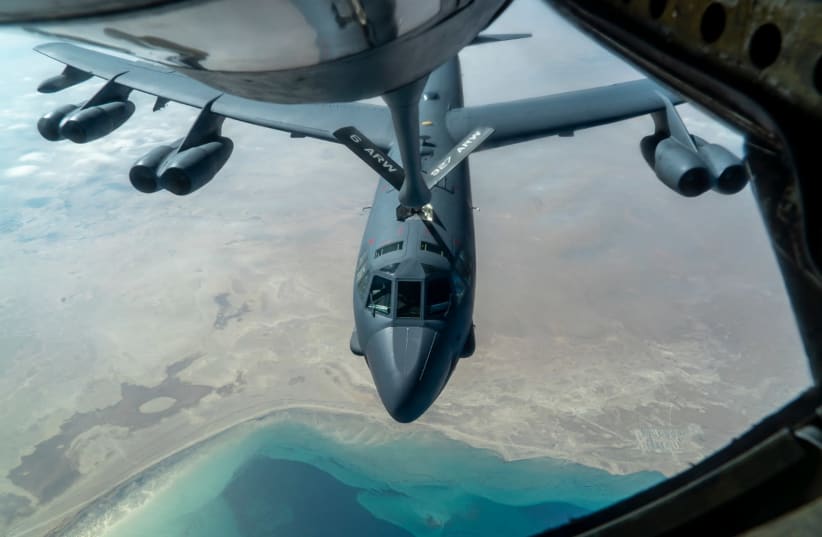In clear deterrent action against Iran on Wednesday, a United States Air Force B-52H “Stratofortress” bomber flew over the Gulf, before the plane was spotted in Saudi airspace heading back to its base in the US.
It was the fourth mission into CENTCOM’s area of operation in the last two months and the first deployment of the heavy bomber since Joe Biden’s inauguration last week.
It came on the same day that IDF Chief of Staff Lt.-Gen. Aviv Kochavi openly said that Israel was redrafting attack plans against Iran’s nuclear infrastructure.
According to reports, the heavy bomber departed Barksdale Air Force Base in Louisiana on Tuesday on a nonstop flight across Jordan, Saudi Arabia, and down the coastline near the United Arab Emirates and Qatar, before turning around and returning to the US.
After the last deployment, US Central Command said the bomber was sent to the Gulf to underscore America’s commitment to regional security and the ability to rapidly deploy to the region as needed.
“The United States continues to deploy combat-ready capabilities into the US Central Command area of responsibility to deter any potential adversary, and make clear that we are ready and able to respond to any aggression directed at Americans or our interests,” said Gen. Frank McKenzie, commander, US Central Command, at the time. “We do not seek conflict, but no one should underestimate our ability to defend our forces or to act decisively in response to any attack.”
Meanwhile, a senior Iranian official warned Israel on Tuesday that it “must realize” that former US president Donald Trump’s era is over and it no longer has influence over US decisions.
Mahmoud Vaezi, the director of the office of Iranian president Hassan Rouhani, issued his warning in response to statements by Kochavi that he had ordered up operational plans to strike Iran’s nuclear program if necessary.
“Israel’s threats are part of a worthless psychological war, but we will not hesitate to defend our country,” Vaezi said. “Israel must realize that... the new American administration is independent, and this is what bothers Israel a lot. Israel and Saudi Arabia have concerns about America returning to the nuclear agreement and understanding with Iran.”
